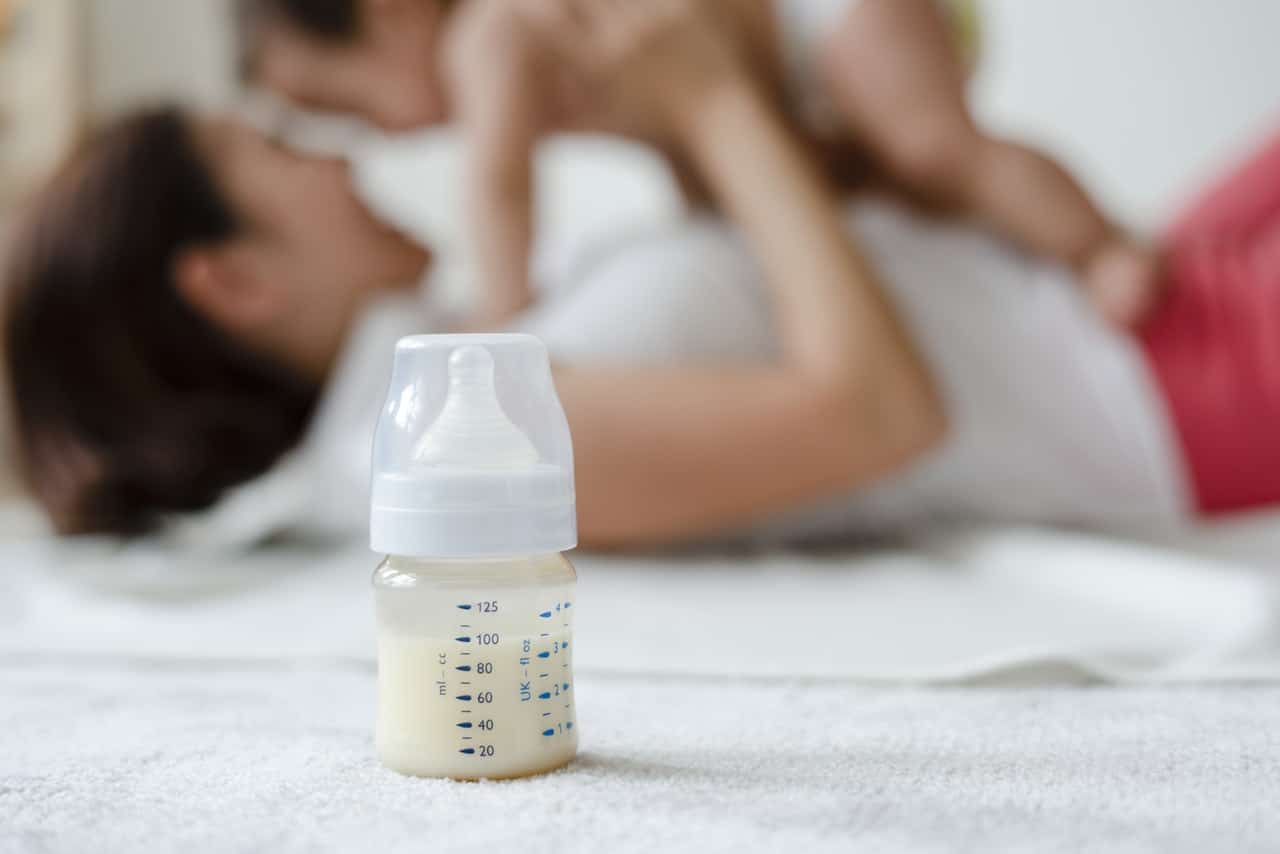
How to Safely Introduce Solid Foods to a Baby
While there is no exact science to introducing solid foods to your baby there are some guidelines you can use to make the process easier.
It is best to follow your baby’s cues about when to introduce and increase the amount of solids. Ensure that breastmilk remains baby’s primary source of nutrition for the first year.
Breast milk is all your baby will need until at least 4 months of age. There does come a time, when breast milk will no longer supply all of your baby’s nutrition needs. Full term babies will start to require iron from other sources by 6 – 9 months of age.
Some babies that have not started on solid foods by the age of 9 – 12 months, may have a great level of difficulty accepting solid foods.
It’s really a beautiful developmental milestone when your child starts solid foods – enjoy this next stage of growing up!
When to Start
When your baby begins to show interest in food, this is the ideal time to start! This can be as early as 4 months of age, however, usually 5-6 months.
Sometimes, it may be a better idea to start food earlier. When a baby seems to get hungry or once weight gain isn’t continuing at the desired rate, it may be good to start solid foods as early as 3 months. It may be possible however, to continue breast feeding alone and have the baby less hungry or growing more rapidly.
Introducing Solid Foods
During the first year aim to have solids complementing breastmilk, not replacing it. This means that when solids are introduced the breastfeeding pattern is not interrupted at all, however, baby is fed solids in slowly increasing amounts as their appetite increases.
It is best to follow your baby’s cues to determine how much and how often they want to eat solid foods. When the baby begins to take solid foods at the age of 5 – 6 months, there is very little difference with what they start with or what order it is introduced.
What Foods Should I Give?
“In reference to allergens, it is now understood that delaying the introduction of certain foods doesn’t reduce a child’s risk for food allergies,” says Frank Greer, MD, a neonatologist in Madison, Wisconsin and fellow of the American Academy of Pediatrics. In fact, introducing them early has been shown to cut the chances of allergy.
The American Academy of Allergy Asthma and Immunology (AAAAI) says that highly allergic foods including dairy products, egg, soy, wheat, peanut and tree nuts (in the form of powder or butter, not whole nuts), and fish (puree) and shellfish can be given to your baby between 4-6 months.
One way to make eating solids for the first time easier is to give your baby a little breast milk, formula, or both first. Then switch to very small half-spoonfuls of food, and finish with more breast milk or formula. This will prevent your baby from getting frustrated when they are hungry.
Offer your baby foods they seem to be interested in. Allow your baby to enjoy the food and don’t worry too much about how much they take at first. Much of it may end up on the floor or in their hair anyhow!
For most babies, it does not matter what the first solid foods are. By tradition, single-grain cereals are introduced first, however, there is no medical evidence that introducing solid foods in any particular order has an advantage for your baby.
Although many pediatricians will recommend starting vegetables before fruits. Babies are born with a preference for sweets, and the order of introducing foods does not change this. If unsure, always check with your child’s doctor.
Baby cereals:
Are available premixed in individual containers or dry, to which you can add breast milk, formula, or water. Whichever type of cereal you use, make sure that it is made for babies and iron fortified.
When can my baby try other food?
Once your baby learns to eat one food, gradually give them other foods. Give your baby one new food at a time.
Foods Not to Give To Baby
Honey: It can cause botulism, a serious illness, if introduced too early.
Cow’s Milk: Stick with breast milk and formula as a primary beverage until your baby is a year old. It’s fine to use cow’s milk in cooking or baking, though.
Nuts, Popcorn, Whole Grapes, and Globs of Nut Butter: These foods are choking hazards.









